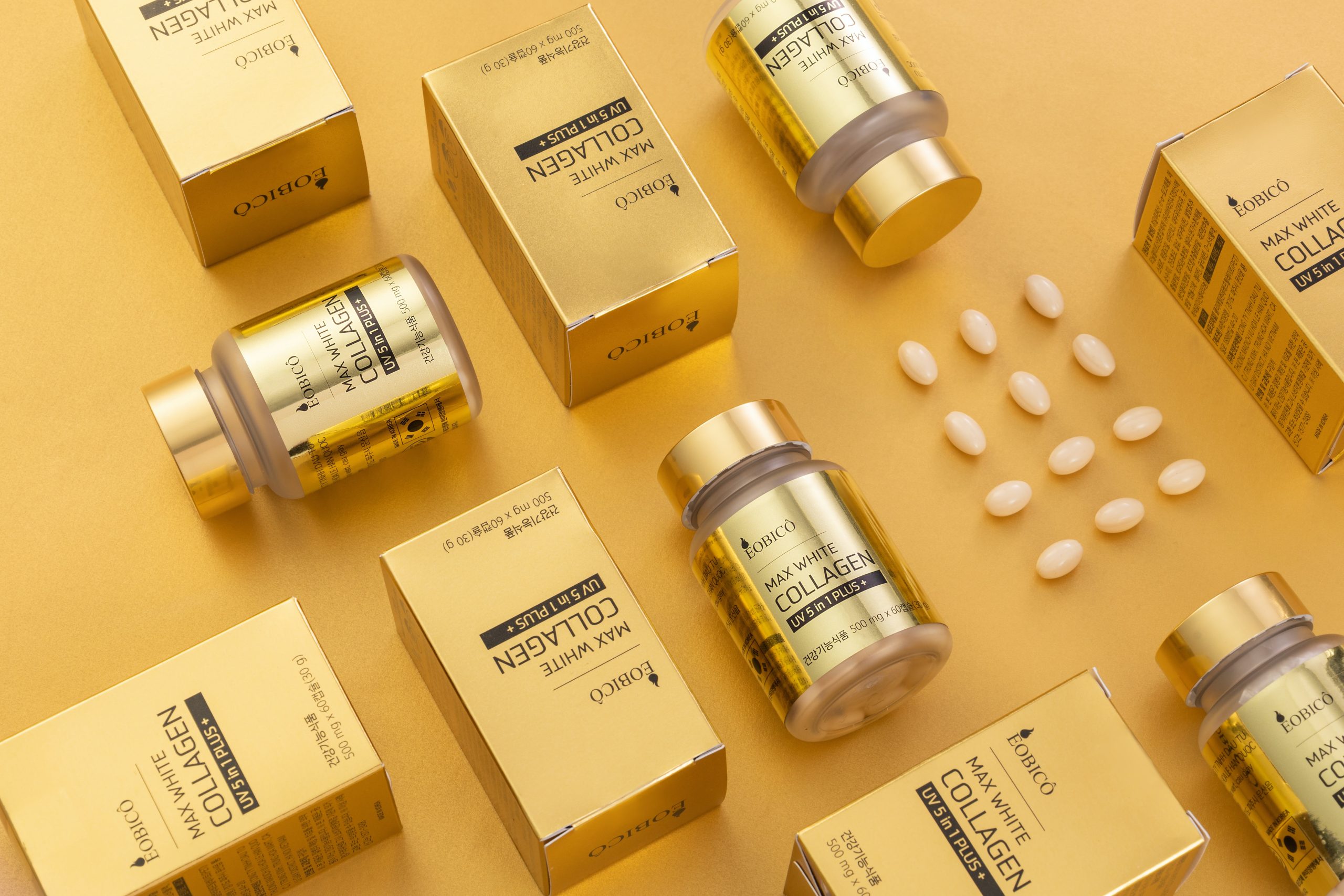Collagen is a type of protein that makes up the body’s structural framework of connective tissue. It is responsible for holding together the skin, tendons, muscles, and other tissues. Collagen production declines with age, and people who suffer from chronic illnesses such as arthritis are often deficient in collagen.
Fortunately, collagen consumption has many benefits, including improved skin elasticity and reduced wrinkles. In this guide, we will explore all of collagen’s health benefits and tips on how to get the most out of it!
Table of Contents
What is Collagen?
Collagen is a protein that forms the insoluble connective tissue in the body. It is essential for maintaining the structure and function of skin, hair, nails, cartilage, and bones. Collagen also helps to produce elastin and tendons.
Collagen is found in meat, poultry, fish, cheese, eggs, and dairy products. However, its levels are highest in collagen-rich vegetables such as legumes (beans), dark green leafy vegetables, and nuts. In fact, some studies show that people who consume more than two servings of vegetables per day have a lower risk of developing osteoporosis.
In addition to its health benefits, collagen is also an excellent source of protein. One cup of cooked collagen has about 18 grams of high-quality protein.

What are the Benefits of Collagen?
Collagen is one of the most abundant proteins in the body and is responsible for keeping skin, bones, and joints healthy. It also supports wound healing and can help improve hair density, elasticity, and overall appearance. Here are five benefits of collagen:
- Collagen helps reduce wrinkles and fine lines.
Collagen has a dual action that helps reduce the appearance of wrinkles while improving skin elasticity. When applied topically, collagen works to preserve elastin fibers which are responsible for maintaining the structure of dermis tissues. This keeps skin looking smoother, more youthful, and free from lines and wrinkles.
- Collagen can improve hair density and texture.
One of the primary functions of collagen is to maintain the structural integrity of hair follicles which can lead to thicker hair with less breakage or loss over time. Additionally, collagen provides volume to fine hair without adding weight or feeling greasy. If you have thinning hair or want to add thickness without using heavy products, collagen may be a good option for you!
- Collagen can help improve joint health.
Collagen helps keep joints lubricated which reduces inflammation and pain in the joint area. In turn, this can lead to improved joint function and decreased risk of arthritis down the line. Additionally, topical application of collagen has been shown to decrease cartilage damage in animal models when used alongside other therapies such as anti-inflammatory drugs or injections.
- Collagen can help reduce the appearance of scars.
Collagen can help improve the appearance of scars by helping to increase collagen production and promote skin healing. Additionally, it can help reduce the visibility of stretch marks and scars through its ability to promote elastin and collagen synthesis.
- Collagen can help reduce the risk of cellulite.
Cellulite is a common issue that affects the soft tissues on your body, including your hips, thighs, and buttocks. Cellulite is caused by excess fat storage within these areas which causes them to become thick and lumpy. When collagen is applied topically to these areas, it helps to break down the excess fat quickly and reduce the appearance of cellulite over time.

How to Get More of It in Your Diet?
Collagen is a protein that helps to keep your skin elastic, your joints flexible, and your hair healthy. It’s also essential for wound healing and keeping your gut healthy. Here are five ways to get more of it in your diet:
1. Eat foods with collagen in them. Collagen-rich foods include chicken, fish, eggs, and beef.
2. Boost your intake of antioxidants. Studies have shown that including high levels of antioxidants like vitamins C and E can help increase the production of collagen in the body.
3. Take collagen supplements. There are many types of supplements available that contain collagen, including pills, powders, and shots. Speak with a doctor before taking any type of supplement to make sure it’s safe for you to use and won’t interfere with other medications you’re taking.
4. Drink collagen-rich milk drinks or juices. Homemade almond milk tea is a great way to get some collagen into your diet without having to eat meat or drink milk products.”
5. Keep your skin hydrated by drinking plenty of water throughout the day.”
Collagen is a vital protein that helps to maintain skin, hair, nails, and bones. It also plays a role in wound healing and reducing the appearance of wrinkles and age spots. This guide provides an overview of the many benefits of collagen and offers tips on how to maximize its effects in your life. By learning about collagen, you can start taking steps to improve your overall health and well-being.





